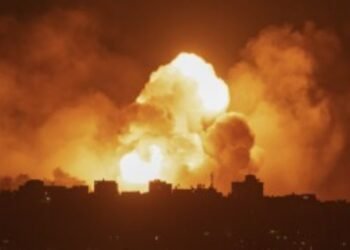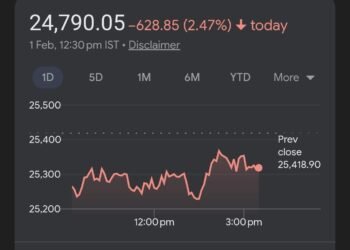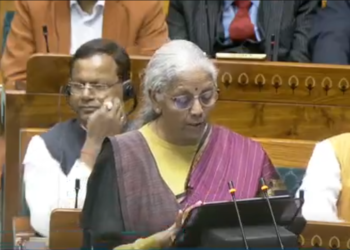The death of IRGC chief Hossein Salami and armed forces head Mohammad Bagheri marks a severe blow to Iran’s leadership, prompting vows of retaliation.
BY PC bureau
June 13, 2025 – Israel has launched a powerful second wave of airstrikes on Iran, triggering air defense responses across multiple Iranian cities and pushing the region closer to the brink of full-scale war.
According to BBC and Iranian state media, fresh strikes targeted Tehran, Karaj, and western Iran late Friday night. Iranian broadcaster IRIB confirmed missile interceptions south of the capital and fresh explosions in key areas, including Karaj. A BBC-verified video showed damage near Tehran from the new wave of attacks.
This comes just a day after Israel’s dramatic military operation on June 13, involving 200 aircraft and more than 100 coordinated strikes, primarily focused on Iran’s nuclear infrastructure and military command centers.
READ: Air India Crash: Boeing Ignored Warnings — 2 Whistleblowers Dead, 1 Condemned
Top Iranian Generals Killed in Massive Strike
Friday’s airstrikes were among the most significant Iran has faced since its war with Iraq in the 1980s. Iran confirmed the deaths of multiple senior military and nuclear figures, including:
- Gen. Hossein Salami, commander of the Islamic Revolutionary Guard Corps (IRGC)
- Gen. Mohammad Bagheri, chief of staff of the Iranian armed forces
- Several top scientists and senior IRGC officials
This coordinated decapitation of Iran’s military command has stunned the regime and triggered threats of severe retaliation.
The ongoing #Genocide in #Gaza and the attack on #Iran by #Israel proves again that US foreign policy in the Middle East is run by Israel and the US is an observer or a collaborator.
This imposes costs on the region & the world with higher oil prices, geopolitical uncertainty.
— Tenzing Lamsang (@TenzingLamsang) June 13, 2025
The Israeli operation, reportedly named Operation Rising Lion, targeted over 100 locations, including the Natanz uranium enrichment site and ballistic missile production facilities. Israeli officials cited escalating threats from Iran’s nuclear program, which had drawn global criticism after a recent censure by the International Atomic Energy Agency (IAEA).

Prime Minister Benjamin Netanyahu defended the strike as a “preemptive necessity,” warning that Israel would not tolerate a nuclear-armed regime that openly seeks its destruction.
Iran’s Response and Drone Attack on Israel
In retaliation, Iran launched more than 100 drones toward Israel. Israeli Defense Forces (IDF) spokesperson Brig. Gen. Effie Defrin said that all defense systems had been activated and that most incoming drones were successfully intercepted.
Despite the robust air defense response, the psychological and military toll of losing top commanders has severely disrupted Iran’s strategic posture.
The airstrikes have reverberated beyond Iran’s borders, sending shockwaves through global markets and diplomatic circles. Oil prices spiked, and global leaders voiced deep concern.
NOW – Israel strikes Iran again in Tabriz in northwest Iran. pic.twitter.com/gWZEBzJ2Lg
— Boarding School Bully Press (@BullyPress) June 13, 2025
- Supreme Leader Ali Khamenei called the Israeli strikes “an act of war.”
- IRGC’s new chief, Gen. Mohammad Pakpour, vowed a “decisive and punishing” response.
- President Trump confirmed the U.S. was informed in advance but stated that Washington did not participate. He urged Iran to return to the negotiating table.
- NATO and the European Union issued urgent calls for de-escalation.
Domestic Tensions in Israel and Iran
Israel has declared a national state of emergency, closed its airspace, and mobilized reservists amid fears of further Iranian retaliation.
Meanwhile, in Iran, mass protests erupted across Tehran and other cities. While many called for revenge, others criticized the regime’s failure to anticipate the devastating Israeli assault and safeguard national security.
Israel’s massive strike has temporarily disrupted Iran’s nuclear ambitions but may trigger a prolonged conflict. With both sides on high alert, the Middle East stands on edge, and the international community faces mounting pressure to prevent the confrontation from spiraling into a wider war.













